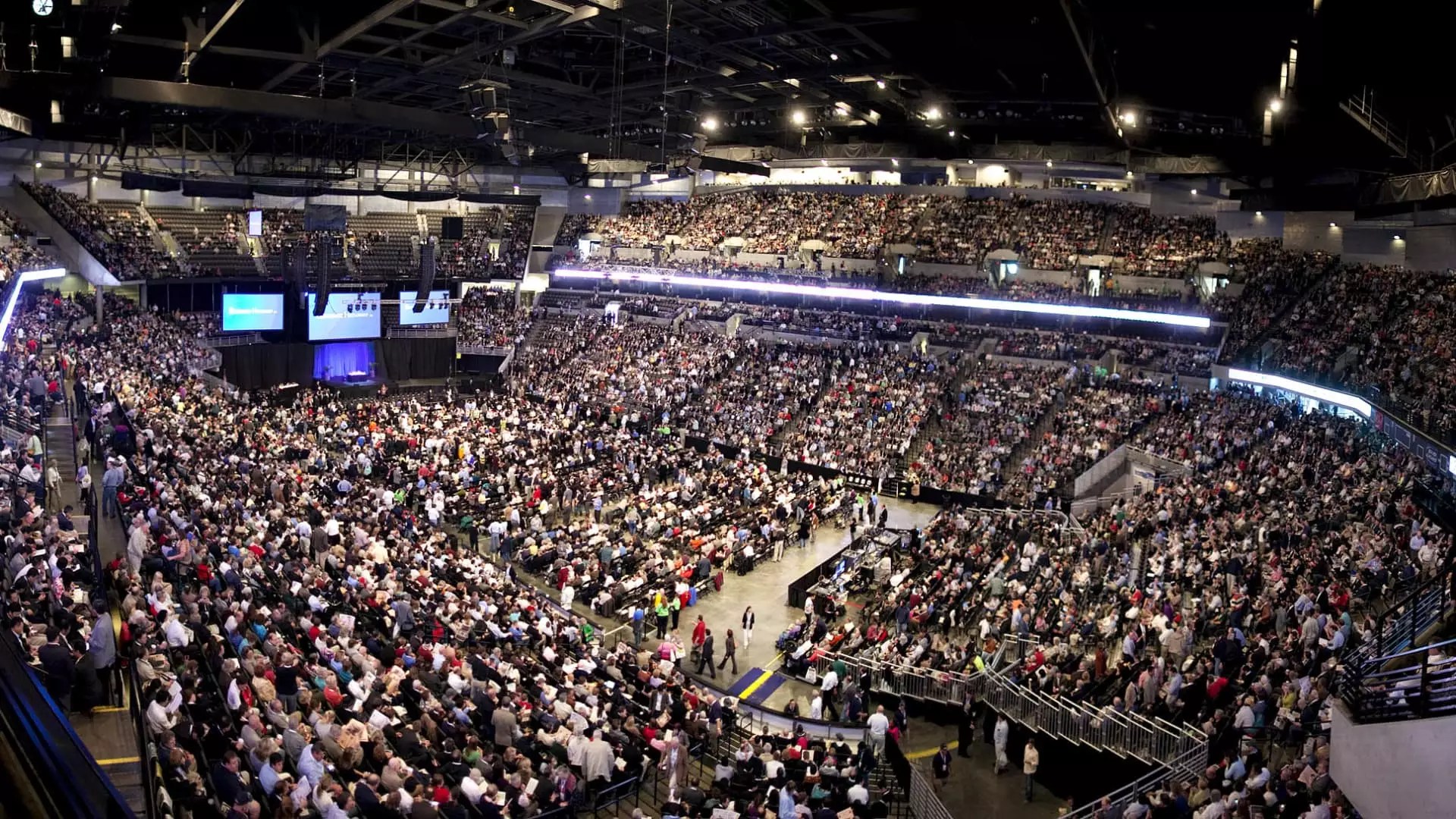When Warren Buffett acquired the struggling textile company Berkshire Hathaway in 1965, he likely had a vision that far exceeded the limitations of its then-current operations. The bleak status of the firm barely hinted at the transformation it would undergo under his stewardship. Today, the annual meeting has transcended its original purpose to become a veritable festival of capitalism, drawing crowds akin to those at music festivals, with attendees numbering as high as 40,000. This evolution illustrates the transformative power of strong leadership and visionary entrepreneurship, but it also raises questions about the direction of capitalism as a whole.
From Textile Factory to Global Stage
What started as a modest gathering of a dozen individuals has exploded into a global phenomenon. This year’s event, dubbed the “Woodstock for Capitalists,” reflects not merely the success of Berkshire Hathaway but also the cultural zeitgeist that celebrates unbounded capitalism. The spectacle surrounding the annual meeting, with its array of activities from charity auctions to 5K runs, calls to mind the commercialization of sacred values. One could argue that the meeting’s growth has strayed from its original purpose—to empower the individual investor toward making informed decisions—becoming instead a multifaceted event that sometimes feels more like a cult of personality rather than a forum for knowledge sharing.
The Loss of a Titan: Charlie Munger
The absence of Charlie Munger, Buffett’s long-time partner and a pillar of wisdom in his own right, looms large this year. Munger’s insightful contributions were like a compass guiding Buffett’s unerring navigation of the business landscape. His passing in 2023 not only loses a great mind to the audience but also sparks concern about the future strategic direction of the company and its annual meeting. Attendees keenly feel this loss and are left to ponder whether the new leadership under Greg Abel can maintain the intellectual rigor that characterized the longstanding duo.
What’s Left of Tradition?
With changes in format —no movie introduction and a condensed Q&A session —the meeting is evolving in real time, leaving many long-time attendees nostalgic for the “good old days.” The ritualistic practices that imbued the event with a sense of meaning are being stripped away, leaving room for commercialization. While schedules can be tightened for efficiency, one has to wonder: is the essence of the event, which fostered genuine community and connection among investors, being sacrificed for a slicker, more corporate approach? There’s a fine line between necessary evolution and an erosion of core values.
The Philanthropic Arm of Capitalism
With the introduction of charitable auctions like the sale of a limited-edition book marking Buffett’s 60 years at Berkshire, there is a palpable effort to intertwine philanthropy with profit. These altruistic gestures, while commendable, risk overshadowing the foundational tenets of capitalism. It’s an ironic twist that the celebration of wealth often comes entwined with the narrative of giving, creating a veneer of benevolence that distracts from the core discussions on wealth creation and responsible investing. The duality of capitalism—celebrating financial success while also highlighting the need for social responsibility—creates a complex dialogue at these gatherings.
A Shift in Broadcasting and Engagement
The exclusive broadcasting rights granted to CNBC and the availability of translations in Mandarin reflect an attempt to globalize investment in Berkshire. While this modern approach can widen accessibility, it again raises the question: does providing access through streams and broadcasts dilute the magic that attendees experience in person? There is an undeniable charm about the in-person camaraderie that fosters a spirit of connection; one must consider whether the unique electricity of the Omaha gathering can truly be replicated through a screen.
While the gathering continues to be a pilgrimage for many young investors hitting the investing scene, one cannot help but feel a deeper unease. The original ethos of education, mentorship, and community is slowly being subsumed by spectacle and commercialization. And yet, for those who continue to embrace the opportunity to learn from one of the world’s greatest investors, the blend of business and spectacle may still prove to be a valuable experience. Will this new direction maintain the integrity of Buffett’s legacy—or fundamentally alter what makes the Berkshire experience both enlightening and profound?


Leave a Reply